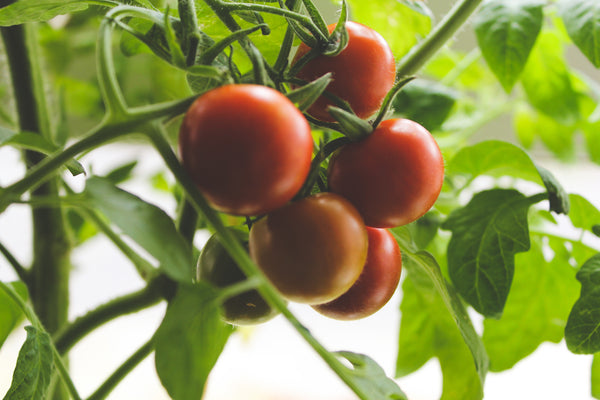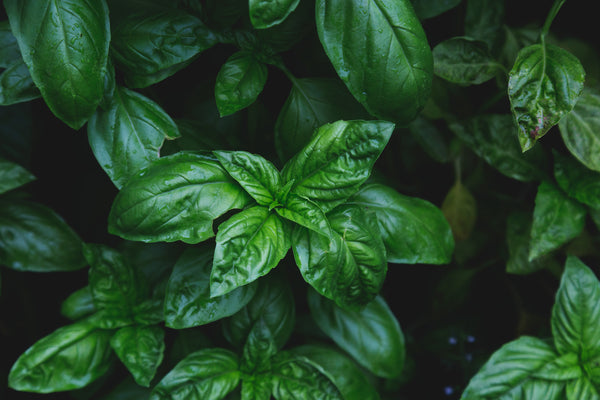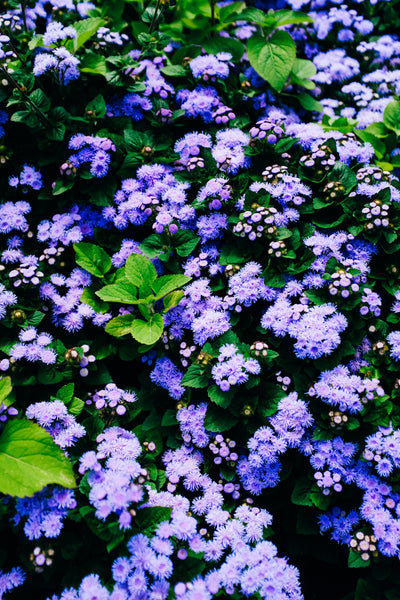About Our Project
CHEP’s goal is to tackle food security by addressing education, access, and food affordability. The askîy project is a CHEP initiative that focuses on educating Indigenous and non-Indigenous youth in understanding urban agriculture. Through our internship, interns have an opportunity to learn about growing fresh veggies, fruits, herbs, and flowers for the community. askîy is a Cree word for earth, and this is just one example of how we attempt to incorporate Indigenous languages, traditions, and values into our practices. The askîy team acknowledges the many Nations found on Turtle Island and incorporates terminology both in Cree and Michif. Our view of good food includes nutritious groceries that are sustainable for the planet, which is a direct outcome of the project. The askîy team works during heatwaves and rainy days because we want to improve our community and create an equitable food system.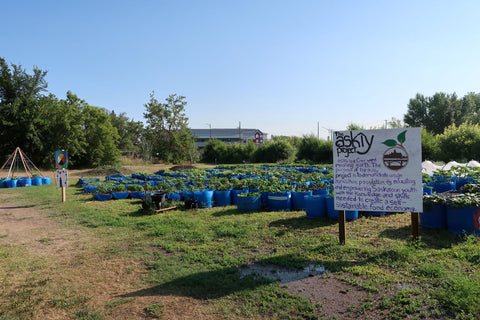
With the donation of seeds from West Coast Seeds, we can get an early start in the greenhouse with plants that have a longer life cycle. Without this opportunity, there would be limited options for planting, as Saskatchewan’s growing season is relatively short. In December, our project coordinator began growing strawberries. At the end of March, leeks, tomatoes, peppers, and squash were grown. Other plants grown in the greenhouse include flowers and herbs. All plants were transplanted into the garden May through June. Alongside our pre-grown seedlings, we also planted seeds with a shorter life cycle directly into the garden. The process of transplanting and planting from seed was a big one, but everything was in the ground and basking in the sun by the end of June.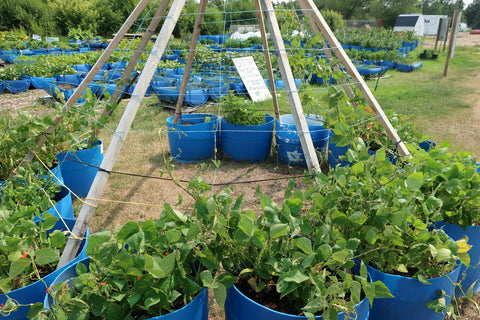
kiscikânis is a Cree word for garden and is the name of our first garden. This site’s soil is contaminated from previous industrial activities, so the seeds and seedlings were planted into containers instead of directly into the soil. In the setting up of the garden, there were wood pallets placed onto the ground, and the open barrels were placed on top and filled with soil. Having two barriers between our soil and the contaminated soil ensures that the produce is safe for eating. When preparing the barrels for use in the garden, holes were drilled into the sides near the bottom to allow good drainage. Unfortunately, there was a case where one barrel had not been drilled into, and the leeks inside were flooded one day because there was too much water. Luckily, an intern noticed, we drilled a hole, and the crops are looking like they will survive.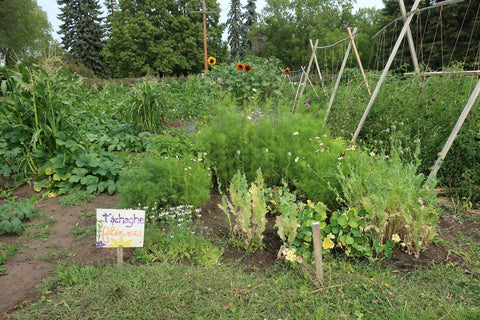
This site is an example of how our organization attempts to work sustainably. Many would wonder why we go through the trouble of setting up the garden, but we thought that it was a productive way to make use of unoccupied space. We have over four-hundred barrels and other types of containers that receive lots of sun and provide sustenance for many.
ketayak community kistikana is our second and newest garden. 2021 is our first year at this site, as it used to be a lawn bowling site. At this location, we have created a partnership with CUMFI (Central Urban Métis Federation Inc) and have provided them with a section of the garden where they can grow. CUMFI sent an elder to our garden to perform a ceremony and name the garden, which means elders community garden in Michif. The name was chosen because the produce grown in their section goes towards providing food for their elders. The garden in its entirety is quite large and contains many different plants, including flowers, tomatoes, beets, carrots, squash, corn, beans, watermelon, rhubarb, and more. We have a sunflower house in one section, where sunflowers were planted in a square formation by a tour group. In another area, each of the interns was given the opportunity to grow whatever they want in a ten-by-ten-foot plot. Each intern can keep the produce for themselves or donate it.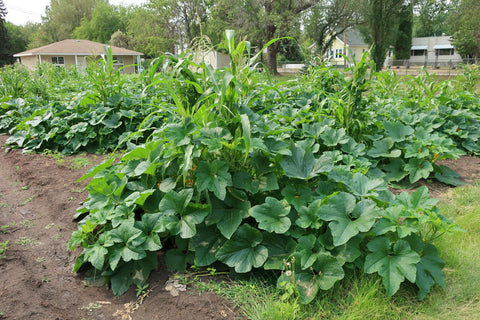
In approximately one quarter of the garden, and in a quarter of CUMFI’s area, we have built three sister’s mounds. The three sisters include three plants that work together to support each other like sisters: squash, beans, and corn. These plants co-exist well together because they function in unison to flourish in the garden. The process begins when you create a mound of soil between one and two feet tall, and two to three feet wide. Next is the planting. Three corn seeds should be seeded on the top of the mound. The corn acts as a stable support system for the beans and provides shade. Around the corn—a few inches down—the beans should be seeded approximately three per mound. The beans work symbiotically with soil bacteria to access nitrogen from the atmosphere to be accessible to plants, which aids all the plants in their ability to produce. Last is the squash, which goes at the base of the mound. There should be two or three of these plants. The squash plants work as a protector from pests, as their leaves are prickly. The big leaves also provide shade to its’ sisters. Anthropologists believe that the Iroquois Confederacy is where the tradition originated from, as well as other northeastern woodland Nations. These crops are known as the primary agriculture crops used throughout Indigenous history, and all were highly valued in their diet. Now, there are many restaurants revitalising this practice by marketing a three sisters’ soup.
The askîy project’s scale of food production increases every year. As the project grows, we hope that public awareness grows as well. We are working to gain awareness so that people know of our accessible food and the importance of sustainability. As general understanding expands, we hope that the world can see how important our goals are and learn about what they can do to make a difference. Although making enough changes to save the planet is overwhelming, the askîy team continues their work, as we believe no efforts are too small. The askîy team and all the CHEP Good Food Inc staff in Saskatoon would like to say a huge thank you to West Coast Seeds for donating hundreds of seeds to us so that we can provide healthy produce for our community. West Coast Seeds is an outstanding organization that cares deeply for the health of humans and the planet. As these priorities align with ours, we are thrilled with the partnership that we have created!
Learn more by following CHEP Good Food on Facebook and Twitter.

